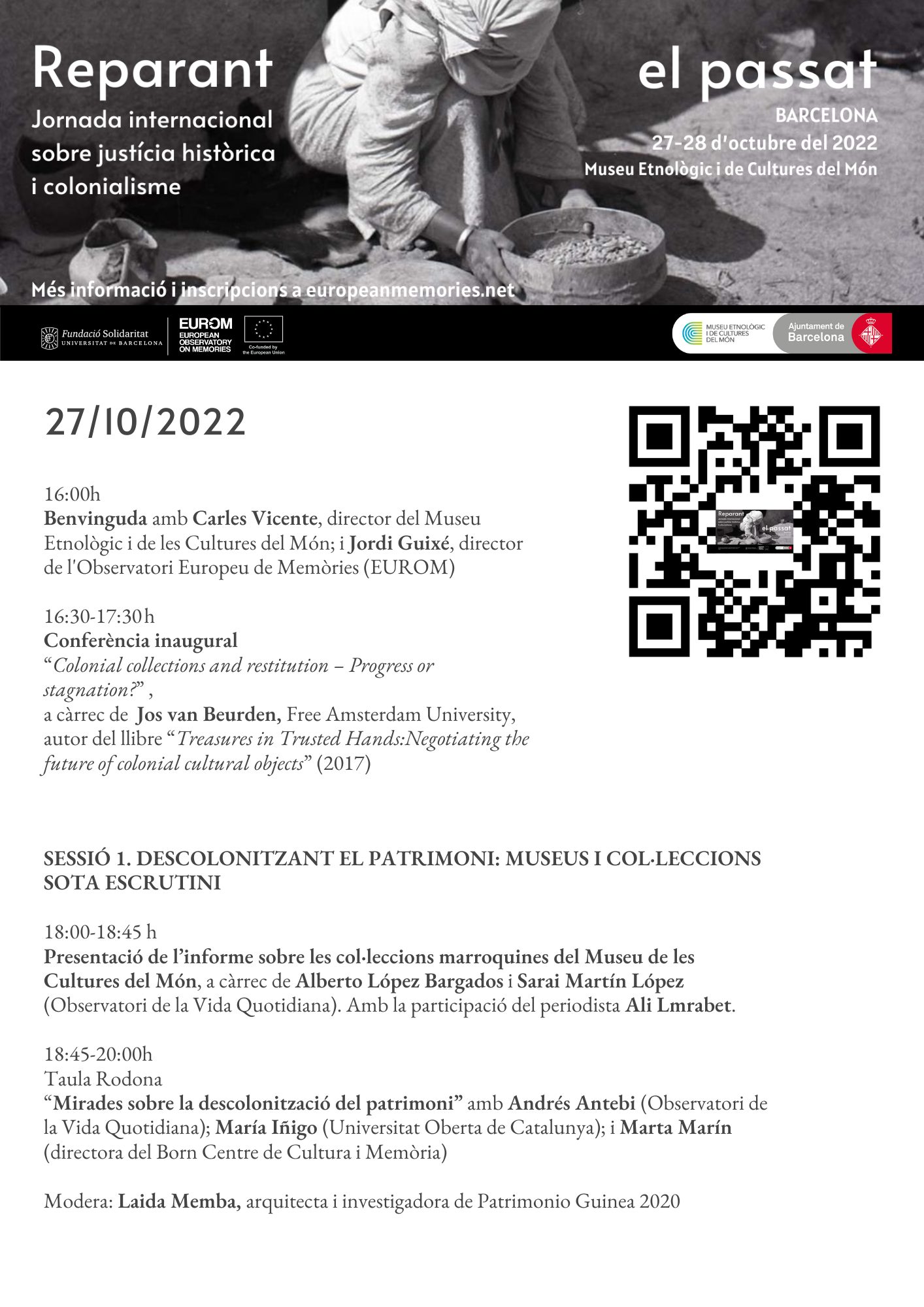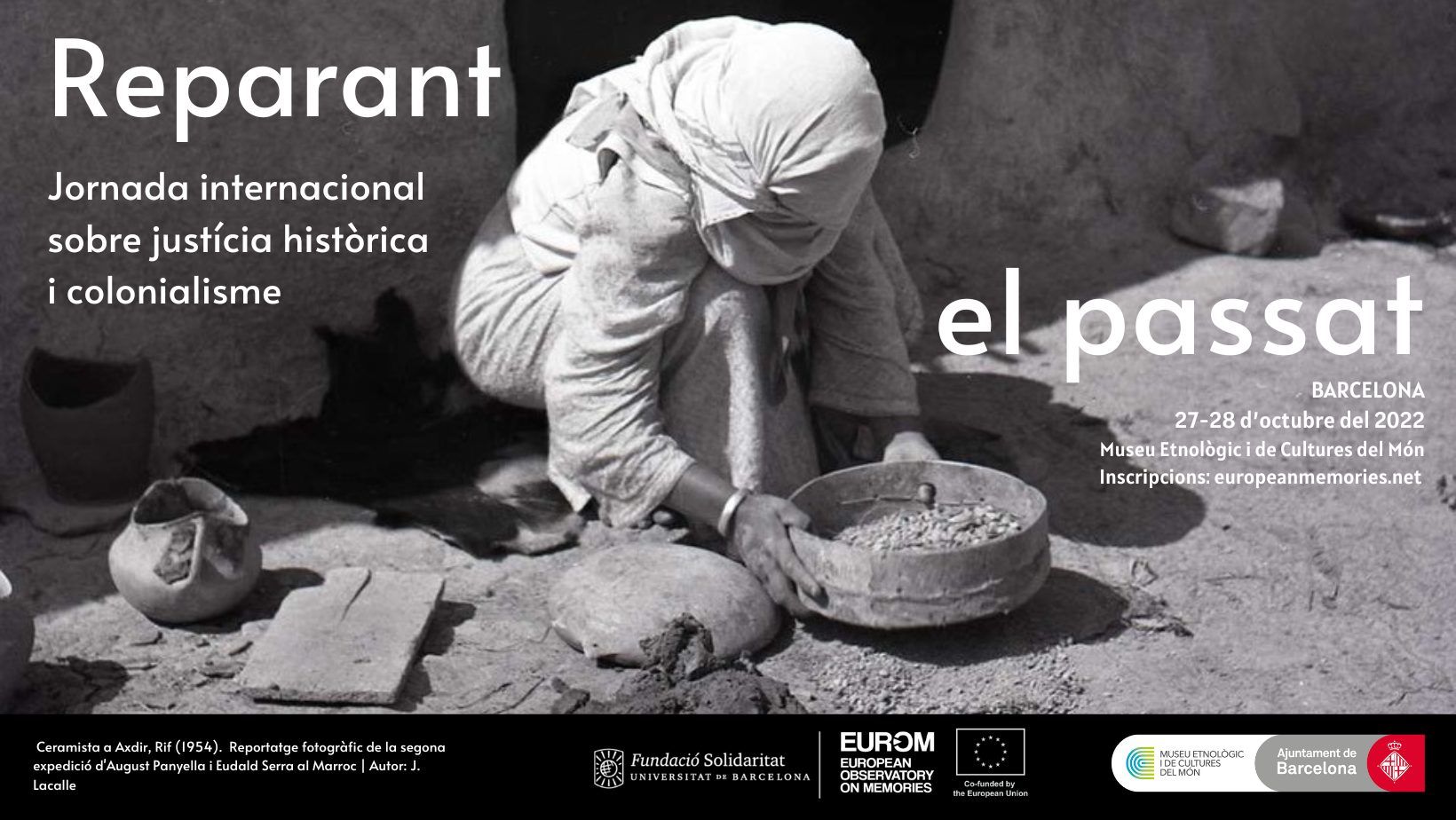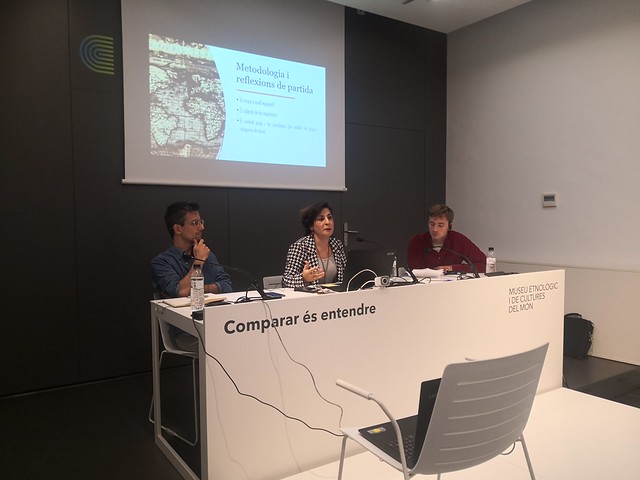Over recent decades, demands for reparation and historical justice have gained momentum across the Americas, Africa, and parts of Europe. However, these calls have had limited resonance in Spain, even after the 2019 European Parliament resolution urging member states to adopt measures such as heritage restitution and improved access to colonial archives.
This international seminar aims to explore and discuss concrete proposals and projects focused on reparative measures currently in progress, with special attention to initiatives in the United States, the Netherlands, and Spain.
Backrgound
Debates about the legacies of colonialism and slavery have transformed perspectives on public spaces, museums, and societal structures over the past decade. These discussions have fueled demands for recognition of historical harm, heritage restitution, financial compensation, and broader societal engagement with inequalities and systemic racism. Although these demands are inherently complex, they must be addressed by institutions, academics, and civil society—particularly in Spain.
In line with previous seminars hosted by the Councillor for Democratic Memory of Barcelona City Council, the Museum of Ethnology and World Cultures, and the European Observatory on Memories (EUROM) at the UB Solidarity Foundation, this event will present key reparative projects. These include the Quotidian Life Observatory’s report on Moroccan heritage at the Museum of World Cultures and the Trans-Atlantic Redress Network’s initiatives on reparation measures in the U.S., the Netherlands, and Spain. By sharing these experiences, the seminar will foster discussions on how such efforts can be implemented and what outcomes they might achieve.
Photo: A ceramist in Axdir, Rif (1954). Captured during the second Moroccan expedition by August Panyella and Eudald Serra. Photographer: J. Lacalle.
Related Playlist
Programme
Simulteneous interpretation will be available | Room capacity: 60 attendees | Please register here to attend
Thursday 27th October
16:00h Welcome session
- Carles Vicente, director of the Museum of Ethnology and World Cultures
- Jordi Guixé, director of the European Observatory on Memories (EUROM)
16:30-17:30h Opening conference
“Colonial collections and restitution – Progress or stagnation?” by Jos van Beurden (Free Amsterdam University and author of the book “Treasures in Trusted Hands: Negotiating the future of colonial cultural objects” [2017])
SESSION 1. DECOLONIALISING HERITAGE: MUSEUMS AND COLLECTIONS UNDER SCRUTINY
18:00-18:45h: Presentation of the report on the Moroccan collections in the Museum of World Cultures by the Quotidian Life Observatory (Alberto López Bargados and Sarai Martín López) with the participation of journalist Ali Lmrabet
18:45-20:00h: Round table “Perspectives on the decolonization of heritage”. Chair: Laida Memba (Guinea Heritage 2020)
- Andrés Antebi (Quotidian Life Observatory)
- María Iñigo (Open University of Catalonia)
- Marta Marin (director of the Born Culture and Memorial Centre)
Friday 28th October
12:00h: Guided visit to the Museum of Ethnology and World Cultures
SESSION 2: COMPARED PERSPECTIVES ON HISTORICAL JUSTICE: TOOLS FOR THE REPAIR AND EDUCATION OF COLONIALISM
17:00-18:30h: Presentation of the Trans-Atlantic Redress-Network initiative in the United States, Holland and Spain. Chair: Oriol Lopez (EUROM)
- Linda Mann (Columbia University – online)
- Celeste Muñoz (UNED-EUROM)
- Jesse Breet (Amsterdam University-NIOD Institute)
18:30-19:15h Closing speech “Racism as a colonial legacy and antiracism as a decolonial necessity” presented by Salma Amazian (University of Granada – anthropologist)




